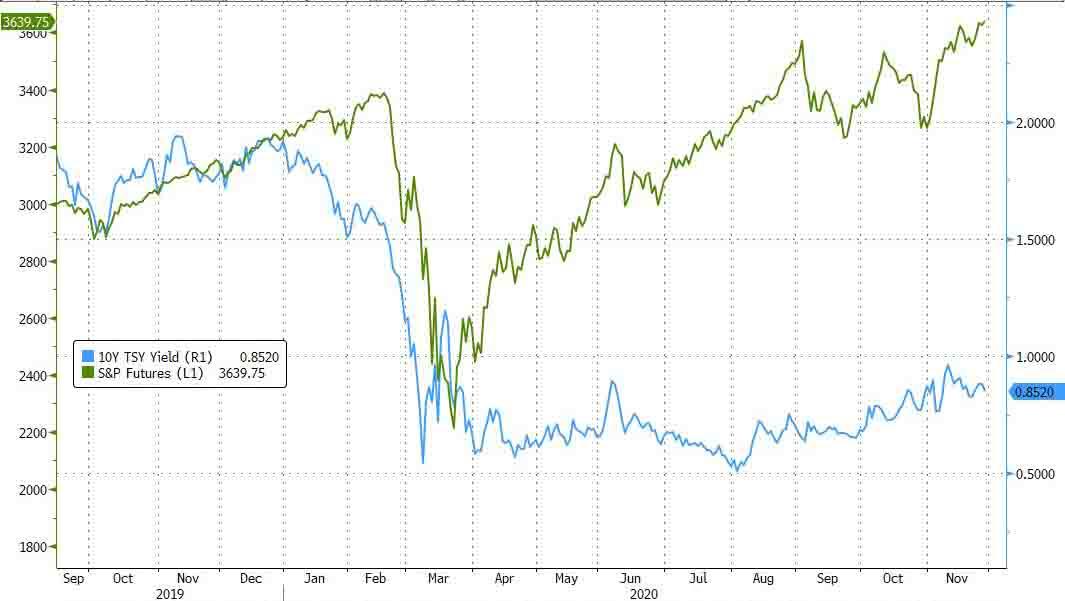U.S. And German Yields Will Bear Brunt Of Lockdowns
Tyler Durden
Sat, 11/28/2020 – 10:30
By Richard Jones, macro commentator at Bloomberg
Increased pandemic restrictions will serve as a massive economic drag in Europe and the U.S. in the coming months, leading to material downside for bund and Treasury yields.
Stocks have rallied this month on vaccine optimism and reduced U.S. political uncertainty. Yet bonds’ reaction on both sides of the Atlantic have been much more circumspect. While the Stoxx 600 and S&P 500 have posted double digit percentage gains, the 10-year UST yield is unchanged and the corresponding bund yield is only 5bps higher, suggesting virus concerns are more in play.
By year-end, given existing partial lockdowns, the 10-year German yield can revisit the -0.67% low seen on Nov. 4. The 10-year UST can trade back down to 0.72%, the Nov. 5 low.
The pandemic is worsening in the U.S. and Europe, and the resulting economic drag will become more evident in the coming weeks and months. Active Covid-19 cases in Germany have almost tripled in the past month. In France, cases have doubled, and in the U.S. they have increased by 50%. With this rapid acceleration, governments have enacted partial lockdowns — and extended them in Germany.
And with the temptation to relax regulations, it is not unreasonable to fear a further spike in cases over the next month or so at a time when health systems are already stressed.
Business and consumer sentiment is already souring and layoffs rising. Should rising caseloads and stretched resources lead to even tighter restrictions in 2021, the all-time lows in the 10-year UST (0.31%) and bund (-0.91%) yields could easily be revisited.
This is especially possible given fiscal stimulus efforts in the U.S. and euro area have stalled with two U.S. unemployment-insurance programs set to expire.
With the make-up of the U.S. Senate still up in the air, it is uncertain how much pandemic aid can be implemented by the incoming Biden administration. Any package will likely be less expansive than the previous initiatives, and may still be several months away.
The European Union recovery program, once hailed as a game-changer, has run aground on political infighting between member states. With negotiations ongoing, the disbursement of funds will be delayed beyond the envisioned starting point at the turn of 2021.
The lack of an aggressive fiscal impulse will leave the ECB and Fed to pick up the stimulus slack required by economies over the winter. To be sure, restrictions may get the virus under control heading into 2021 and fiscal stimulus might yet be implemented soon. Failing these eventualities, the pandemic’s economic drag opens up a lot of downside for German and U.S. yields.
via ZeroHedge News https://ift.tt/36g0wmZ Tyler Durden
